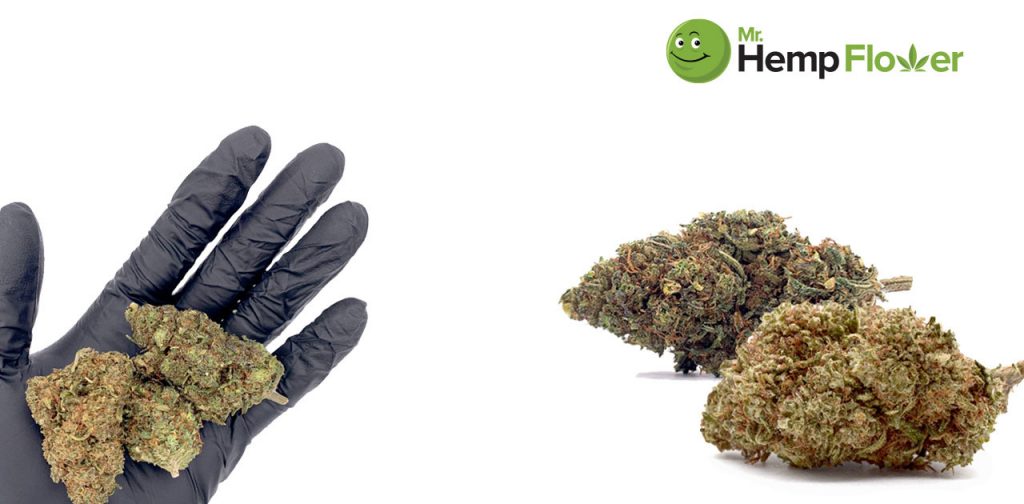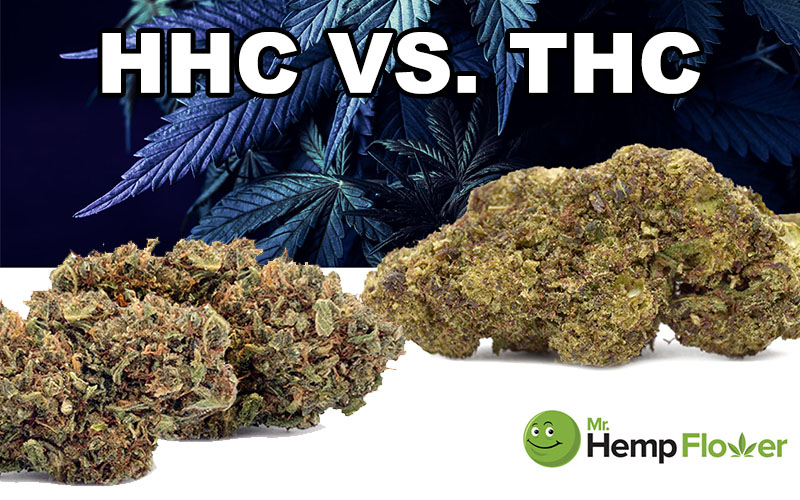HHC is the latest cannabinoid to hit the hemp market, but it’s not as new to scientists as it is to us. This compound has been around since the 1940s when it was synthesized by Roger Adams and his team.
Anecdotal evidence paints this compound as the more euphoric and relaxed version of delta 9 THC. Unfortunately, there’s a lack of transparency in the HHC space at the moment, so users don’t know what to expect from a product in terms of potency and effects.
This article explains everything you need to know about the strength of HHC, how it compares to different cannabinoids. Let’s dive in.
What is HHC?
HHC stands for hexahydrocannabinol, or the most stable form of THC. This compound comes in various forms, with cannabiripsol being the most widely used by premium vendors.
HHC is a THC analog, meaning it has a similar structural composition to THC. The only difference is that this cannabinoid is fully saturated with hydrogen atoms and has no double bond. As you may know, the double bond in delta 9 is located at the ninth carbon chain, while in delta 8 at the eight carbon chain.
How Strong is HHC?
When talking about “strength” or “potency” of a cannabinoid, we refer to its ability to bind with (or block) endocannabinoid receptors and result in a psychotropic experience. In short, the more potent the cannabinoid molecule, the more intense a feeling it provides.
The potency of hexahydrocannabinol (HHC) is closely related to its chemical structure. As mentioned, HHC’s structure is similar to delta 9 THC, but instead of the typical THC double bond, it contains additional hydrogen atoms.
For THC and its analogs that cause a psychotropic experience, potency depends on the number of carbon atoms contained in the molecule. Delta 9, delta 8, and delta 10 all contain five carbon atoms, but because of other changes to their chemical structure, their binding affinity to the CB receptors is altered. As a result, their potency varies.
The ideal molecule to fit perfectly into the CB receptors would contain eight carbon atoms — and be crowned as the most potent cannabinoid. Since such a molecule doesn’t exist, THCP (seven carbons) is currently the strongest of all cannabinoids.
Cannabinoids with three carbon atoms (THCV) cause a mild sensation, while molecules with less than three carbon atoms (THCC) don’t bind with CB1 receptors and don’t cause a “feeling”.
Molecules with fewer than three carbon atoms will not bind with endocannabinoid receptors at all, so they won’t provide a psychoactive experience.
How Strong is HHC Compared to Other Cannabinoids?
To get a sense of how potent this cannabinoid is, let’s compare it to other intoxicating cannabinoids.
THCP — The Strongest of All
Tetrahydrocannabiphorol (THCP) is the peak of cannabinoid potency with a maximum of 33 times the potency of delta 9 THC. HHC is slightly less potent than delta 9, so THCP is even more potent than HHC.
THCP is so strong it’s almost psychedelic in its effects that are nearly identical to THC’s. One of the main differences between the two is that THCP is more biologically active, so it’s important to use it with caution. This cannabinoid was discovered in 2019 and exists naturally in cannabis — but in very low concentrations.
THC-O — First Runner Up
THC-O is a THC analog with a similar chemical structure to delta 9. A significant difference between the two is that the THC-O molecule has a unique acetate group attached to it. The added part of the molecule makes it 3 times stronger than delta 9 THC and 4 times stronger than HHC.
THC-O is also a prodrug of delta 9 THC. It’s not a naturally occurring cannabinoid but one of the many synthetic cannabinoids. As a prodrug, it means it becomes active in the body after being metabolized by the liver.
Delta 9 THC — The Baseline
The strength of HHC comes into perspective when compared to the primary active cannabinoid in cannabis, delta 9 THC. Early evidence shows that HHC is about 80% of delta 9 THC’s potency, but there are some users who don’t notice any difference between the two.
Delta 9 THC is the most prevalent cannabinoid with intoxicating properties in marijuana plants. It has five carbon atoms and a hydroxy group that permits its binding capacity with CB1 receptors of the endocannabinoid system.
Delta 8 THC — The Twin Sister
Arguably the most popular of all intoxicating cannabinoids, delta 8 THC disrupted the hemp market and rose to popularity within a year after its appearance. This cannabinoid has a nearly identical chemical structure to delta 9 THC and is less potent than HHC. Delta 8 THC is around 50% to 70% of delta 9’s strength.
The only difference between the two is the placement of the double bond. In delta 8 THC, the double bond is on the eight carbon chain, while the delta 9 isomer has it on the ninth. In HHC, there’s no double bond because the molecule is saturated with hydrogen atoms.
For reference, our Delta 8 THC Gummies are not as potent as our Delta 9 THC Gummies. But, they are perfect for anyone looking to experience a nice, mellow buzz that keeps them productive during the day. Edibles take longer to kick in, so it’s wise to wait until the first effects show up. You can expect to feel clear-headed, relaxation, and minimal anxiety and paranoia.
Delta 10 THC — The “Half” Sister
Delta 10 THC is slightly less potent than delta 8 THC and around 50% as potent as delta 9 THC (the benchmark).
This cannabinoid has an almost identical chemical structure to THC. The only difference is the placement of the double bond that’s found in the tenth position. Delta 10 THC gets you mildly intoxicated, improves focus, and boosts mood and energy.
THCV — Maximum Number of Double Bonds
Tetrahydrocannabivarin (THCV) is another molecule with a nearly identical structure to delta 9 THC. The main difference is that THCV has three carbon atoms in the alkyl side chain. For reference, HHC, delta 8, delta 9, and delta 10 all have five carbons, with the delta 9 isomer being the most robust.
Cannabinol — Minimum Number of Carbons
Although cannabinol (CBN) has five carbon atoms in the chain like other THC isomers, it has two additional double bonds in the ring. Chemically, HHC has no double bonds in its structure, so CBN is its exact opposite and has a maximum number of double bonds.
Cannabinol is a result of THC’s degradation and is approximately 10% as potent as delta 9 THC. Because of its structure, it’s far less likely to bind to CB1 receptors.
Potency of Non-intoxicating Cannabinoids
In our opinion, cannabinoids like CBD, CBC, CBDV, etc., cannot be compared in potency to the above cannabinoids. One of the reasons is that non-intoxicating compounds don’t directly activate the CB1 receptors, so even if consumed in large doses, they won’t cause psychoactivity.
That said, they will give you a body sensation and get you relaxed and calm, but without altering your state of mind.

Is HHC Natural or Synthetic?
It depends on where it’s sourced from.
HHC does occur naturally in the hemp plant but in minuscule amounts, similar to delta 8 THC and delta 10 THC. It’s formed when delta 9 THC oxidizes into CBN over a long period of time when the cannabis flower is not stored properly or begins to age.
Such low concentration makes natural extraction from the flower non-viable, so manufacturers resort to hydrogenation of the THC molecule. This simple process allows them to take delta 9 THC derived from hemp and saturate the molecule with hydrogen atoms.
The process of hydrogenation includes exposing the molecule to a catalyst, typically a heavy metal like nickel or zinc, which converts the molecule to HHC.
This reaction forces the double bond to break and makes the HHC molecule unstable. Adding the hydrogen stabilizes the HHC molecule, making it more stable than delta 9. But, because hydrogenation is involved in producing this cannabinoid, HHC is considered semi-synthetic.
How to Choose Quality HHC Products?
Before you buy HHC online, determine the quality of the product and the transparency of the vendor. The three main things to look for are third-party testing, method of production, and reputation.
Since 2016, Mr. Hemp Flower has provided impeccable service and lab-tested cannabinoid-rich products. When HHC first appeared, we didn’t immediately jump into the production process but slowly dived into research and started collaborating with labs that promised and delivered consistent quality and safety.
Once we figured out a safe way to extract this compound from hemp material, we started offering it as part of our product line. Our products come with detailed certificates of analysis and contain real hexahydrocannabinol extract. If you are looking for organic, pure, toxic-free HHC products, check out our hemp flower.
Dutch Delight HHC Flower (15% CBD & consistent coat of 10% HHC) abounds in the fragrant scents coming from its unique terpene profile. This flower has a herbal flavor with a hint of sweetness and is best used during the evenings. It makes a great choice for creatives and high stress individuals.
Sour Space Candy HHC Flower (15% CBD & consistent coat of 10% HHC) is a sativa-dominant strain best suited for relaxation and comfort.
Conclusion: How Strong is HHC Compared to Other Cannabinoids?
HHC is somewhere in the middle.
It’s not as potent as THC-O, THCP, and delta 9 THC, but it’s a bit stronger than delta 8 THC and delta 10 THC. This cannabinoid proved the ideal replacement for lovers of delta 9 THC because it provides nearly identical effects without the dreaded anxiety and paranoia.
If you’re looking for a cannabinoid with very similar effects to THC that’s likely legal in your state, HHC might be right for you. Cannabinoid research is in its infancy, but anecdotal reports show overwhelmingly positive outcomes from consuming HHC products.
FAQ
Is HHC more potent than delta 9 THC?
No, HHC is approximately 80% as potent as delta 9 THC.
This depends on the product you’re using. Edibles take around 30 minutes to work while smoking and vaping 10-15 minutes.
Is HHC more potent than delta 8 THC?
Yes, HHC is more potent than delta 8 THC. Delta 8 THC is around 50 to 70 percent as potent as delta 9 THC.
Read our legal disclaimer HERE. While we try to stay as up to date as possible on all state laws, you should do your own due diligence and work with a legal professional to ensure you are operating legally in your state or territory at all times.













